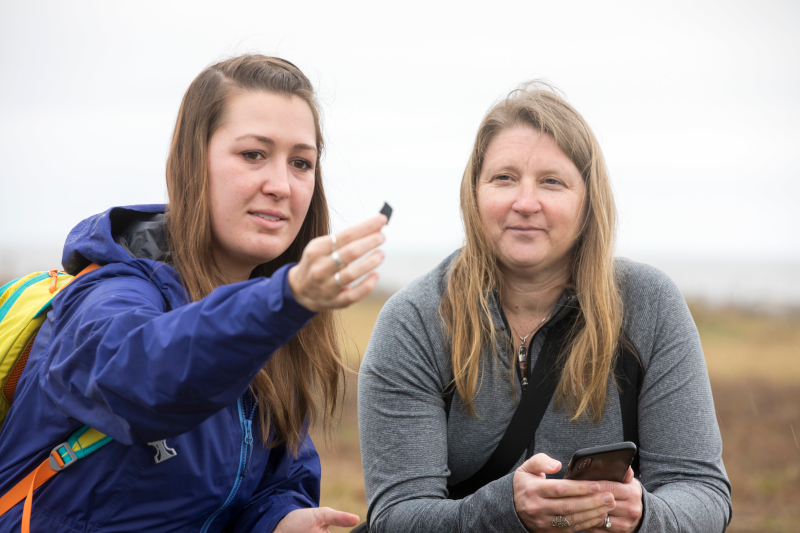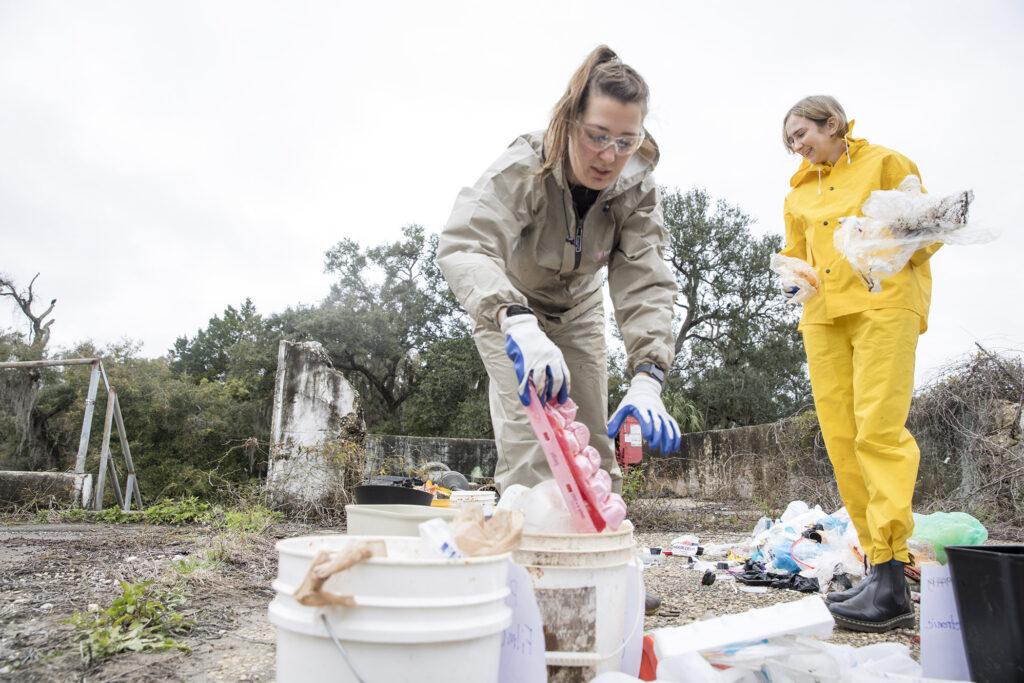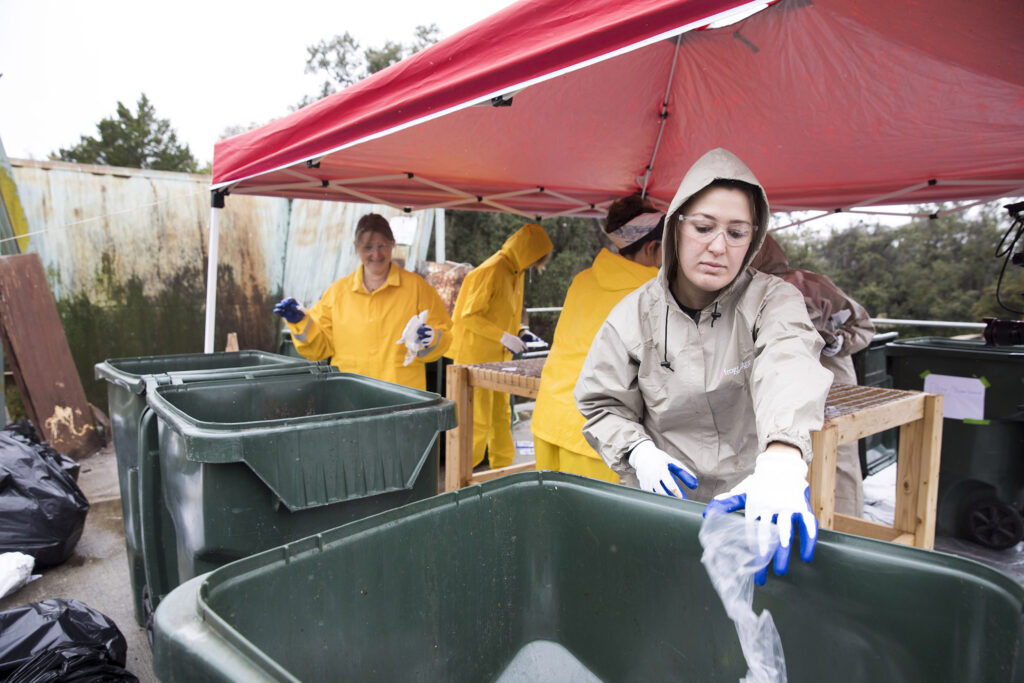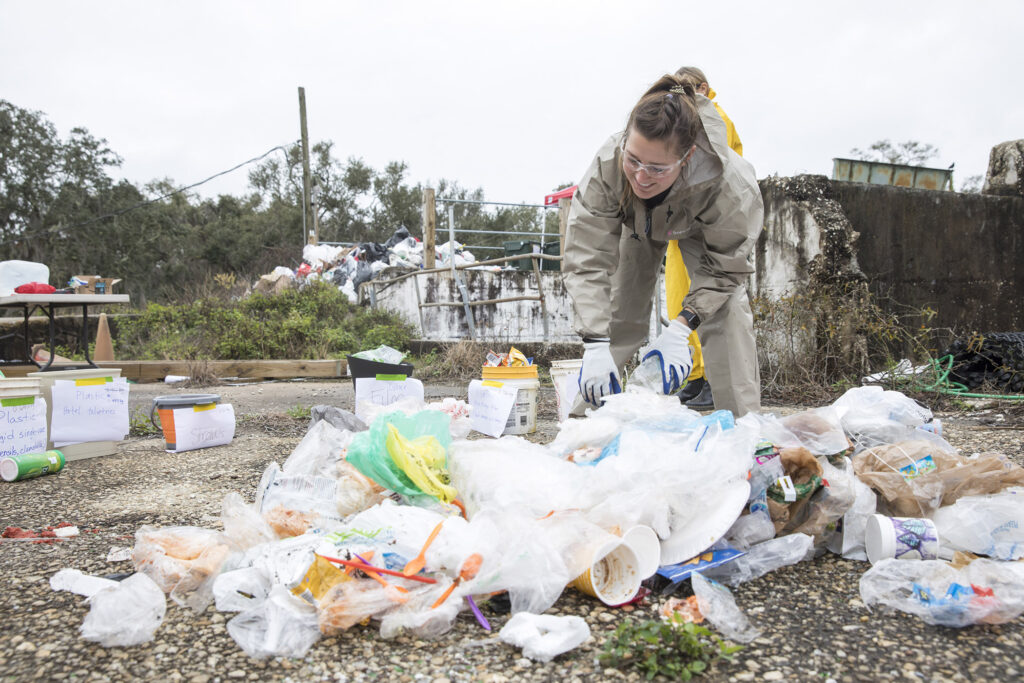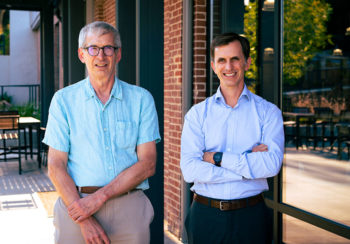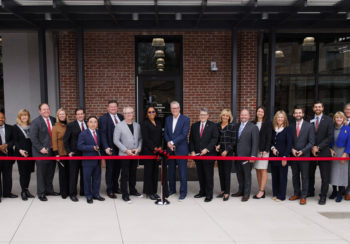Can I Recycle This? thrives with the help of Innovation District resources
The University of Georgia’s Delta Innovation Hub recently welcomed its newest startup tenant: “Can I Recycle This?” or CIRT. CIRT moved into the Hub officially in April 2022, though the company has been making use of its resources since it opened in 2019.
CIRT helps consumers determine the recyclability of products and packaging based on their geospatial location. Founded by Jenna Jambeck and Katherine Shayne, both at the College of Engineering, CIRT aims to keep recoverable materials out of landfills, the environment and the ocean by getting them into a circular management system. The company engages diverse communities in the conversation about designing for recyclability by trying to make recycling accessible and easy for everyone.
The company was born out of Jambeck’s research on plastic pollution in the world’s oceans. Jambeck, Georgia Athletic Association Distinguished Professor in Environmental Engineering, and Shayne, a graduate student at the time, started receiving questions from across the country about what materials are appropriate for recycling. Understanding they had a problem to solve, the pair enrolled in the I-Corps program, where aspiring entrepreneurs can go to begin their customer discovery process.
Katherine Shayne,left, and Emily Roberts sort through litter at the Jekyll Island Landfill.(Photo by Dorothy Kozlowski/UGA)
“I-Corps really laid the foundation for figuring out that process,” said Shayne, who co-founded the company with Jambeck and now serves as CEO and chief information officer. “Who do you need to talk to? How many interviews do you need to do? What kind of questions should you be asking? What problems are you solving? They show you how to pinpoint the actual person who is going to be purchasing your product.”
The Delta Innovation Hub provides CIRT with space for growth as they hire UGA student interns and expand their team. It’s also given them the opportunity to be closer to the resources the Innovation District has to offer.
“[The Hub] is like a geography of genius,” said Jennifer Davidson, CIRT chief operating officer and senior vice president of customer experience. “It’s a space that allows community members to come in and work with people who are still in the university and create synergy.”
“We’re fortunate enough to be able to connect with industry partners, through the Office of Business Engagement, to collaborate and find solutions for problems in sustainability,” said Shayne. “During our time in I-Corps, we also found that not only cities were a part of the equation but also private waste management companies, like Waste Management and Republic Services. There were other players in this space—not just cities—because recycling is a business.”
Recycling standards vary from place to place. This means that many people are unwittingly contaminating recycling facilities with nonrecyclables, sometimes causing the whole stream to be diverted to a landfill.
“There is a push for companies to be more sustainable and there’s a push for companies to be more transparent about their packaging,” Shayne said. “There’s also a push from the legislation side to have companies be accountable for their packaging.
“We’re changing how we communicate and aggregate data about circularity to not only people, but companies too,” Shayne said. “We’re both a software and data company, creating a digital hub about products, packaging and materials, and how to recycle them correctly.”
CIRT takes this data and offers companies sustainability analytics. These can be used to inform consumers of e-commerce about how to recycle their products and packaging. They also offer packaging companies the functionality of a QR code that allows customers to quickly scan and answer the question, “Can I Recycle This?”



